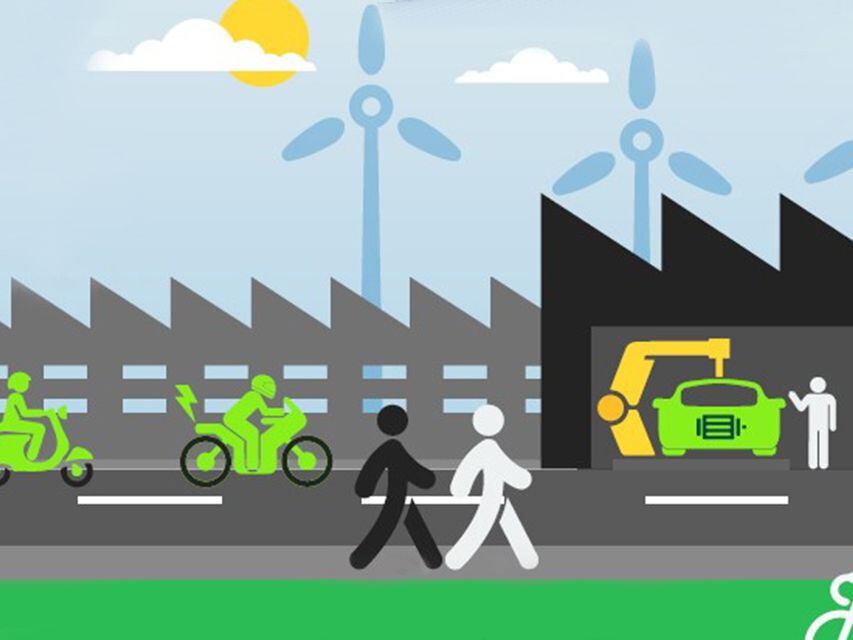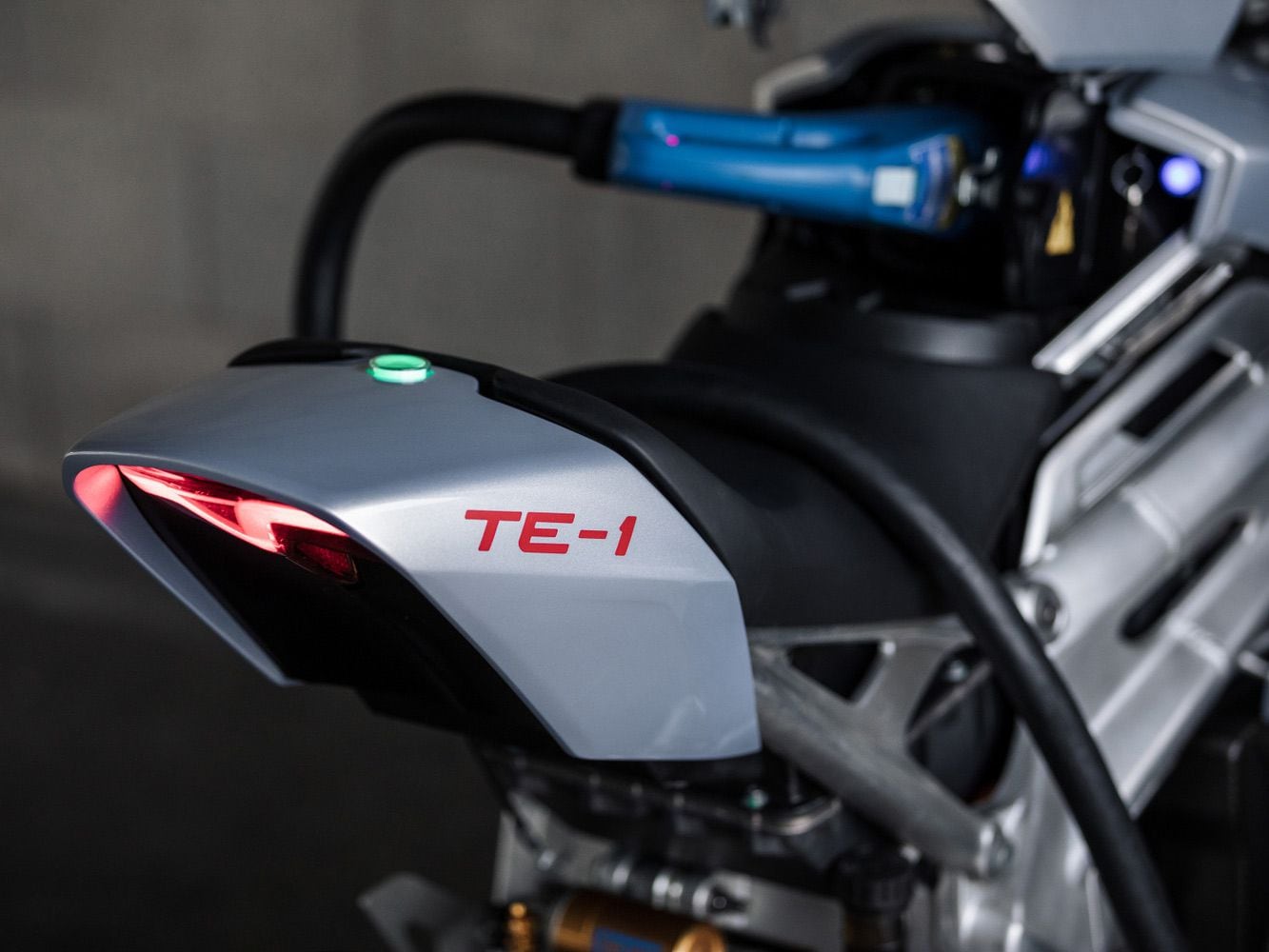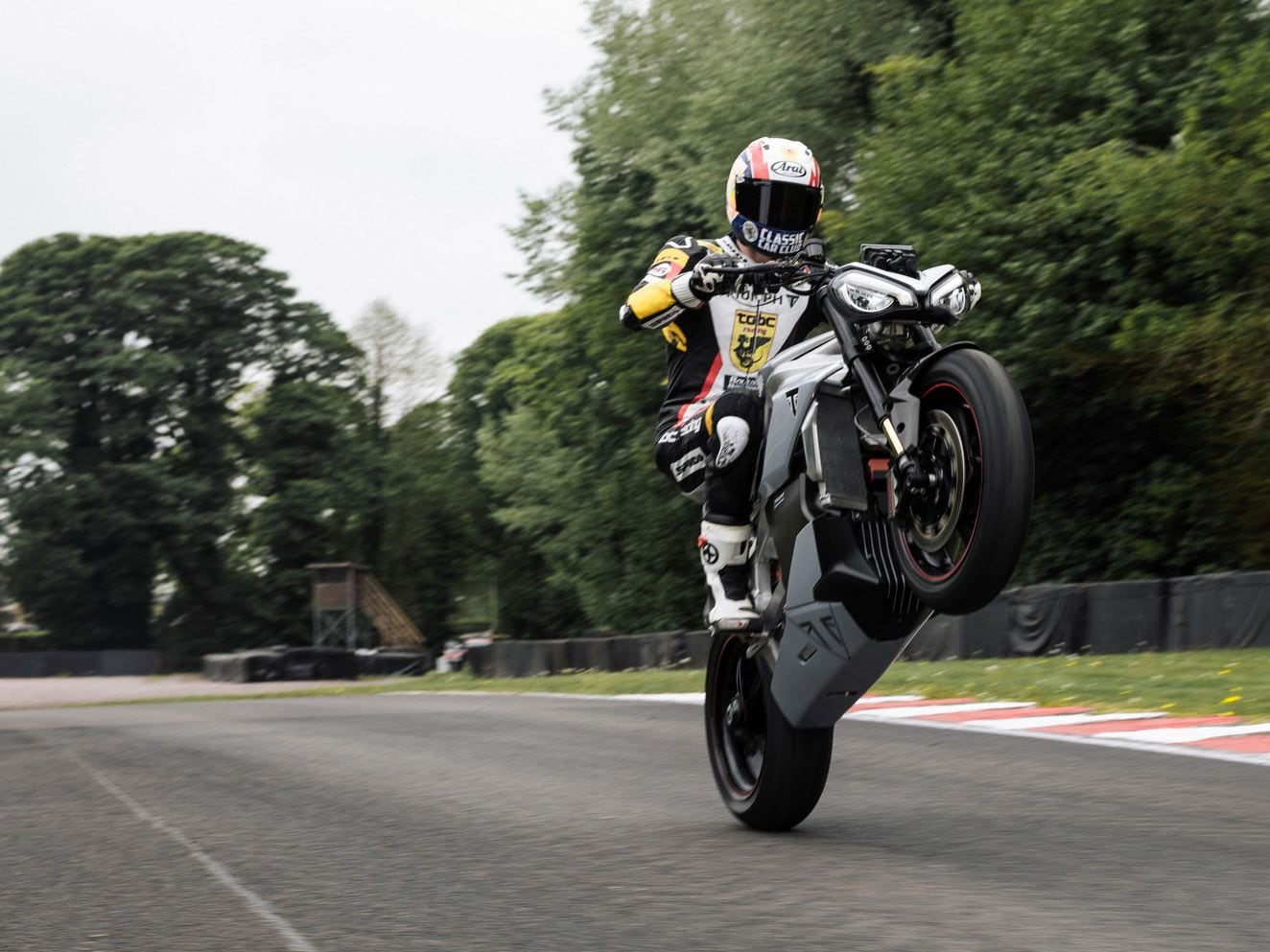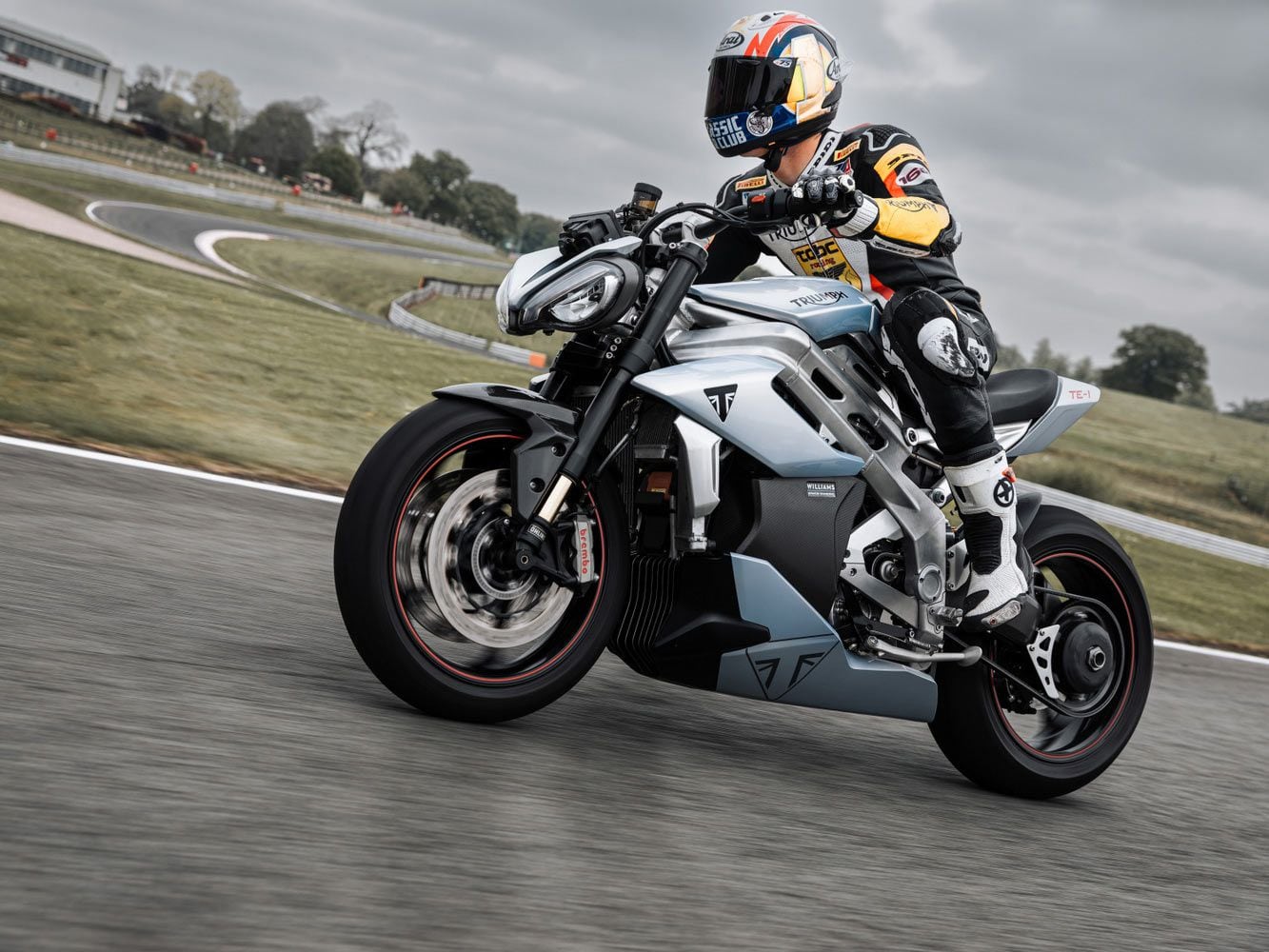
 |
|
|
#1 |
|
All the news that's fit to excerpt
Name: newsie
Location: who knows?
Join Date: Jun 2008 Motorcycle(s): only digital replicas Posts: Too much.
|
[cycleworld.com] - The UK Puts a Date on the Death of Combustion Engine Bikes
The end of the UK-made internal combustion bike isn’t here, but it’s just over the horizon.
Click here to view on their site.  The predictably green and sunny illustration from the green and sunny press release announcing the sunset of the ICE motorcycle in the UK. (UK Government/)The pressure to eliminate carbon emissions in order to deal with global warming means that it’s long been clear that fossil-fueled road transport—whether on two wheels or four—is living on borrowed time. Now the UK government has put forward plans to put an exact date on the demise of gas-powered motorcycles, proposing to end sales of any “non-zero emission” two-wheelers by 2035. The UK might not be the place where bikes were born; most agree that Germany’s 1894 Hildebrand & Wolfmüller takes that credit. But English production started just two years later with the 1896 Excelsior and began a revolution that would see the country become the global center of the motorcycle industry for decades to come. While that domination ended when Japan’s big four came onto the scene, there’s no denying that British bikes played a vital role in motorcycle development that still echoes into today’s models. So perhaps it’s fitting that the UK also leads the way in putting an end to fossil fuel-burning bikes and making the transition to electric models.  The charging system of the Triumph TE-1, a motorcycle specifically mentioned by the UK government as a positive step in the transition to two-wheeled electric power. (Triumph/)The first step to ceasing the sale of gas-powered bikes in the UK is an official consultation that’s been launched by the country’s government, hot on the heels of plans to eliminate combustion-engine cars, vans, and trucks from showrooms. On four wheels, the dates already set in stone are 2030, by which time all new cars must be either hybrid or pure electric, and 2035, by which time cars won’t be allowed combustion engines at all. Motorcycles escaped attention in that first tranche of legislation, but the new consultation looks to adopt a similar time scale, though its implementation will be different. Under the proposed rules, small combustion-engine motorcycles and scooters under 125cc and 15 hp, a category currently classed as learner bikes in the UK, will be banned from sale from 2030. Larger, higher-performance gas-powered bikes will have just five more years after that before being outlawed, in terms of new sales, in 2035. There’s no current plan to stop the use of existing gas-powered vehicles, but the shift toward an electric infrastructure might make their use increasingly impractical if gas stations start to disappear. In announcing the consultation, Minister of State for Transport Trudy Harrison said: “We have grasped this unique chance to showcase our environmental leadership. We have already committed to phasing out fossil fuel use across road transport, with sales of new petrol and diesel cars and vans ending as early as 2030; all new cars, vans, and trucks of 26 tonnes and under being zero emission by 2035; and 2040 as a backstop for all new road vehicles. “It is therefore important that L-category vehicles [the designation for two-wheelers in the UK and EU] do not remain fossil-fueled as the rest of the transport fleet cleans up. Last year we delivered our landmark Transport Decarbonization Plan. A key commitment was to consult on a phase-out date of 2035, or earlier if a faster transition appears feasible, for the sale of new non-zero emission powered two- and three-wheelers. “Zero emission L-category vehicles don’t just offer us a vital reduction in CO2 emissions; they open up a future where our roads are less congested, and air and noise pollution are reduced across our local communities.  Triumph’s TE-1, seen here opening up a future where roads are less congested and air and noise pollution are reduced across local communities. (Triumph/)“This vision is rapidly becoming a reality. Zero emission L-category vehicles are now hitting the market in increasing numbers. These vehicles have a wide range of uses, whether that’s to bring deliveries to your door in minutes; to travel the open roads on longer leisure trips; or to open up a whole range of educational and employment opportunities to those in the most disadvantaged communities. I am determined to further develop the electric capability of the UK’s iconic motorcycle industry, which will open up the opportunity for new skilled manufacturing jobs across the UK.” Digging deeper into the consultation document, which calls for responses to the plan from individuals and businesses with an interest in the issue, reveals that the cutoff date of 2035 could even be brought forward. The paper states: “We are interested in receiving views on the following end of sales dates for new non-zero emission L-category vehicles: 2035 (or earlier if a faster transition seems feasible) for all L-category vehicles; 2030 (or earlier if a faster transition seems feasible) for L1, L2, L3e-A1, L6, and L7.” Those latter codes refer to smaller bikes and three-wheelers. L1 vehicles are mopeds capable of less than 28 mph; L2 are three-wheelers with the same performance; L3e-A1 are motorcycles up to 125cc and 15 hp; L6 are “light quadricycles” limited to 28 mph; and L7 are “heavy quadricycles” with up to 20 hp. That means it’s the 2035 date for all “L-category” vehicles that really matters, as it covers all the higher-performance motorcycles as well as faster three-wheelers like the Yamaha Niken or Can-Am’s Spyder and Ryker. Although the consultation runs until September, and legislation won’t be drawn up until after it closes and responses have been considered, on the face of it the chances of the 2035 cutoff date for new combustion-engine bike sales looks unlikely to be pushed backward. One reason for this, put forward in the consultation document, is that the UK has a commitment to “net zero” carbon emissions by 2050, and the average motorcycle in use in the country at the moment is already over 15 years old and rising. That means even with a 2035 ban on combustion-engine motorcycle sales, there will still be a lot of gas-powered machines on the road by 2050. While the main focus of the consultation is two key questions, namely asking whether respondents agree or disagree with the cutoff dates of 2030 and 2035, it also looks further into how the transition might be handled. Notably, it asks whether allowances should be made for “specialist use vehicles, including military service and emergency vehicles, and parts of the market which may need further time to transition, e.g., niche manufacturers.” It also questions whether low-carbon fuels, including synthetic fuel, biofuel, or hydrogen, could play a role alongside pure electrification, even though such vehicles are not, strictly speaking, “non-zero emissions” vehicles; even hydrogen combustion engine emit NOx alongside the H2O that makes up most of their exhaust. The consultation says the government is “technology neutral” on the matter and will consider alternatives to electrification in its quest for net zero. To encourage manufacturers along the path to electrification, the consultation paper references existing plans already in place to mandate a sliding percentage of car sales from each manufacturer to be zero emission each year from 2024. The paper also asks whether motorcycle companies should be subject to a similar requirement to help bring their electric bike projects forward and make sure they don’t hold back until the last moment to transition to zero emissions vehicles. It also points out that taxpayers’ money has already been put into electric motorcycle projects by the government, including the TE-1 prototype developed by Triumph with the help of funding from the Department of Business, Energy and Industrial Strategy, and a forthcoming BSA electric bike project that was awarded a grant for 4.6 million pounds sterling in 2021. Norton is also developing its own electric bike, again partly funded by government grants. The plan has been met with a mixed reception from the motorcycle industry. Some brands, such as Kawasaki, which will launch two electric bikes later this year and already plans to make its entire range electric or hybrid by 2035, are welcoming the UK proposal. However, the country’s Motorcycle Industry Association (MCIA) is calling for more time to make the transition, pointing out that motorcycles account for just 0.5 percent of UK domestic transport emissions. MCIA Chief Executive Tony Campbell said: “We recognize our environmental contribution will increase as other transport modes phase out and so support the decision to phase out L1 vehicles by 2030. However, we do not support the decision to include L3e-A1, which even with an ICE powertrain are significantly more environmentally efficient than some electric cars. “The Government has not considered the complexities of the L-category sector in terms of what is and isn’t feasible when it comes to phasing out the other key segments of the market. “We put forward a compelling case,” Campbell continued, “in our Journey to a Brighter Destination document for the continued support of large-capacity leisure motorcycling and why it needs to be treated as such in the consultation. Its minimal emissions, low mileage, important contributions to the economy, sport, tourism, and mental health benefits are all reasons why a fairer, progressive, and more bespoke approach is needed to phase out new non-zero emission motorcycles. “The MCIA and its members will be continuing to push the case for why large-capacity motorcycles need more time to phase out and are looking forward to fully engaging with the consultation process to ensure the best outcome for industry.”  Triumph’s TE-1, which was developed with aid from the Department of Business, Energy and Industrial Strategy, furthering the electric capability of the UK’s iconic motorcycle industry and opening up the opportunity for new skilled manufacturing jobs, or so it says here. (Triumph/)The National Motorcyclists Council, a coalition of rider and industry organizations, is also wary of the plans. Executive Director Craig Carey-Clinch said: “The Government’s ambitions in this area are clearly running ahead of what may be reasonable to deliver. Successful transition in any field requires those affected to be content with changes proposed. In the case of zero emission motorcycles, particularly in the premium market segments, current product availability, price point, the current state of electric bike technology, and rider acceptability, suggest that much more will need to happen before a reasonable target date for full zero emission new production can be established. It is not yet known whether manufacturing can meet these proposed targets with a range of motorcycle types which will have broad market appeal among riders, given the wide diversity of rider requirements and activities across the sector. “One of the knock-on effects of these concerns is scepticism among sections of the motorcycling public about the electrification of motorcycles. This should not be brushed aside by the Government. Rider opinions must not be ignored in the rush to decarbonize.” The NMC also points out that options like hydrogen power or synthetic efuels—both carbon-neutral solutions that would allow more conventional combustion-engine technology to live on—are being brushed aside. Carey-Clinch said: “This is not the technology neutrality the Government claims to have. The move toward net zero is a matter which is too technologically detailed to restrict it to battery electrification only. Imposing specific technologies means limiting choice and therefore creating a constraint on innovation. Automotive manufacturers and the aviation industry are making significant investments in developing synthetic fuels which have the potential to allow ICE technology to continue while being part of the move toward decarbonization. Other technologies such as hydrogen-powered vehicles are also part of the development of new technologies.” While it will still be some months before the results of the consultation are collated and considered, and longer still before the UK government draws up and passes legislation reflecting its decision, it looks like the 2035 cutoff date for mainstream combustion engine bike sales is unlikely to be shifted. As with previous exhaust emissions legislation, there may eventually be some form of “derogation” process to allow stragglers with gas-powered bikes still on the market by that date to sell off stocks, but in less than a decade and a half it’s clear that most riders in the UK will only be able to pick from whatever battery-powered options exist by then. At the moment few other countries have been so bold as to put forward a definitive cutoff date, but most are moving in the same direction. It will be no surprise if the European Union adopts a similar stance after the next generation of exhaust emissions rules are hammered out, and electrification is clearly already a path being adopted in other major motorcycle markets including Japan, China, and India. And while it seems bleak for the future of the internal combustion engine, the rapid development of electric vehicles means that, by 2035, there’s actually a good chance that riders buying new bikes will want electric power, making the whole question of “banning” the old technology as irrelevant as implementing a ban on VCRs in an age of streaming services.
__________________________________________________
I'm a bot. I don't need no stinkin' signature... |
|
|

|
 |
 Similar Threads
Similar Threads
|
||||
| Thread | Thread Starter | Forum | Replies | Last Post |
| [cycleworld.com] - Motorcycle Engine Balancing Act | Ninjette Newsbot | Motorcycling News | 0 | June 17th, 2022 11:53 AM |
| [cycleworld.com] - Reader Comments: Engine Torque | Ninjette Newsbot | Motorcycling News | 0 | April 20th, 2022 11:52 AM |
| [cycleworld.com] - Benelli Parent Patents Second KTM Engine | Ninjette Newsbot | Motorcycling News | 0 | April 20th, 2022 11:52 AM |
| Man puts plane engine in bike | Motofool | Videos | 18 | May 21st, 2013 04:49 PM |
| Date written on back of engine - white marker??? | tabletennisman | 2008 - 2012 Ninja 250R Tech Talk | 14 | April 1st, 2011 02:55 PM |
|
|